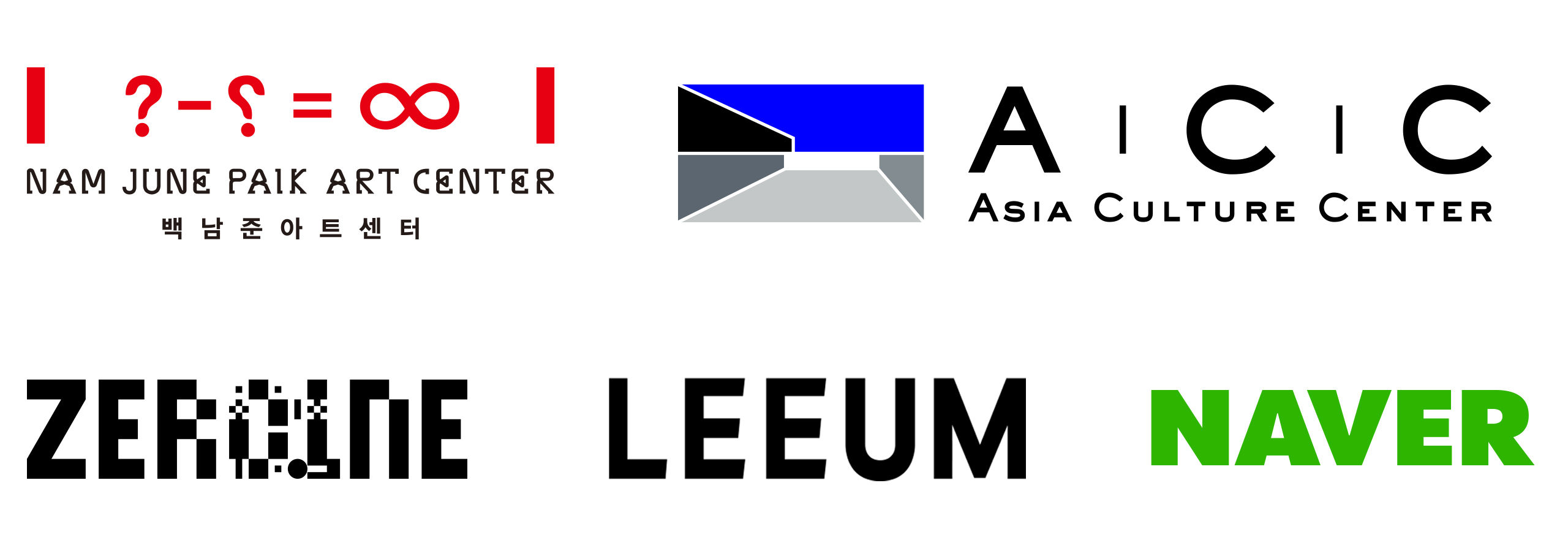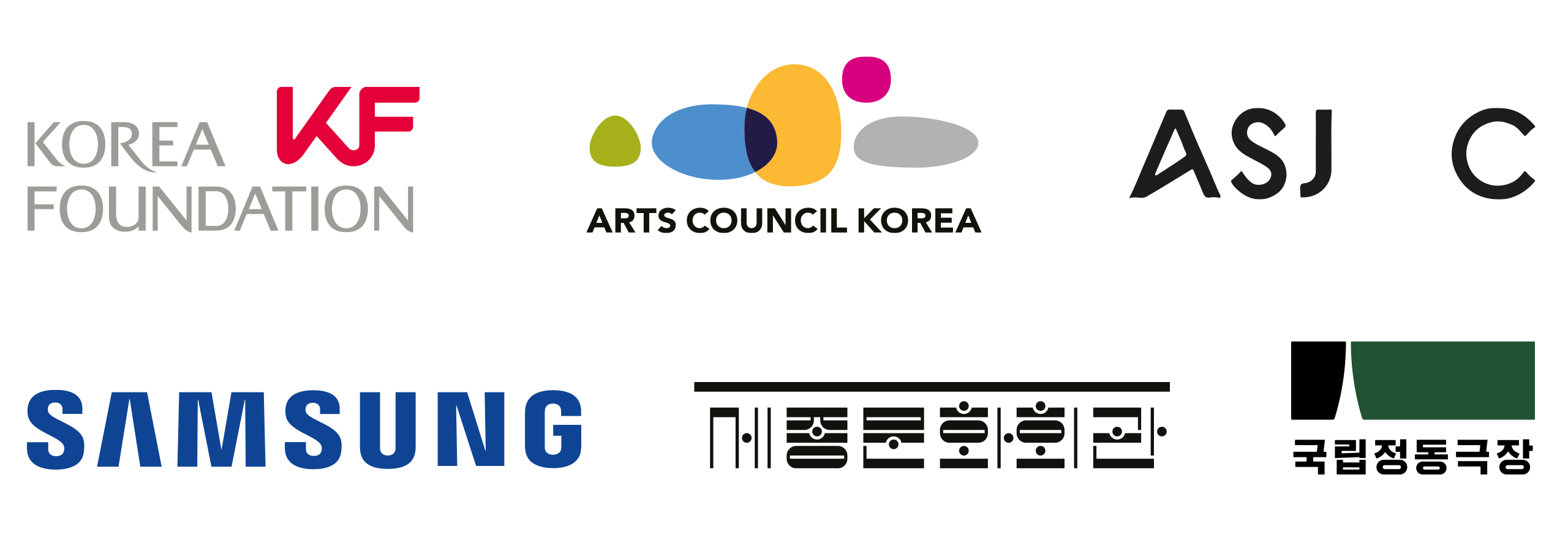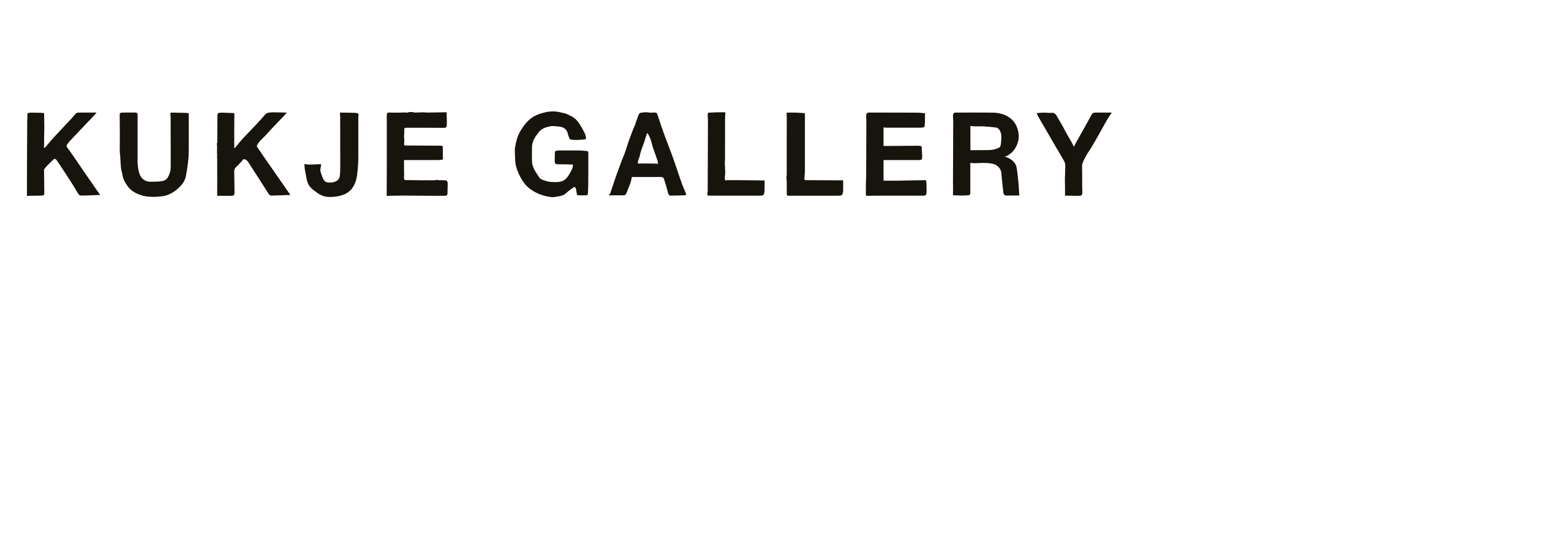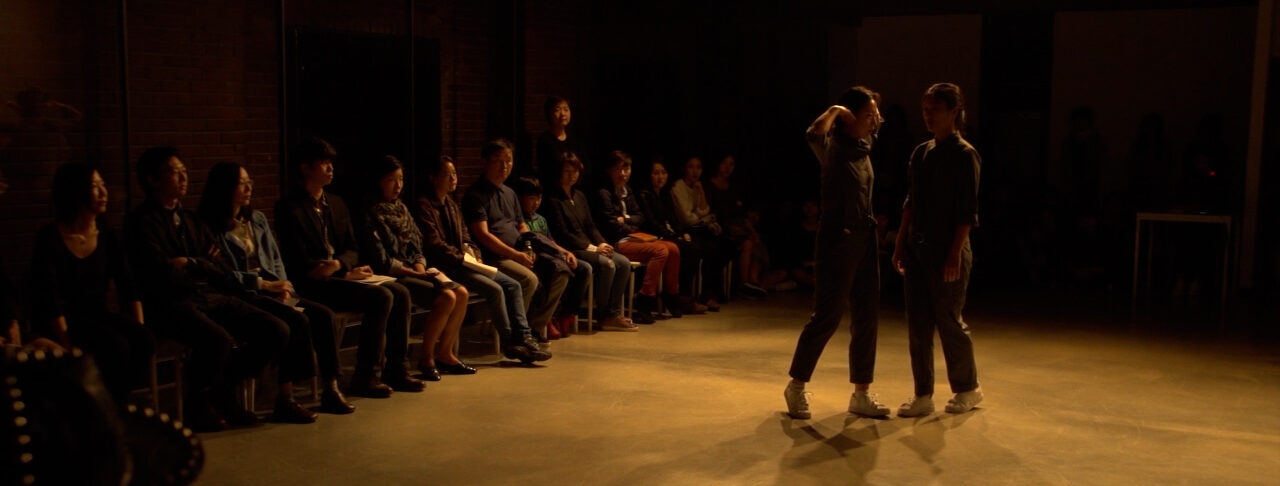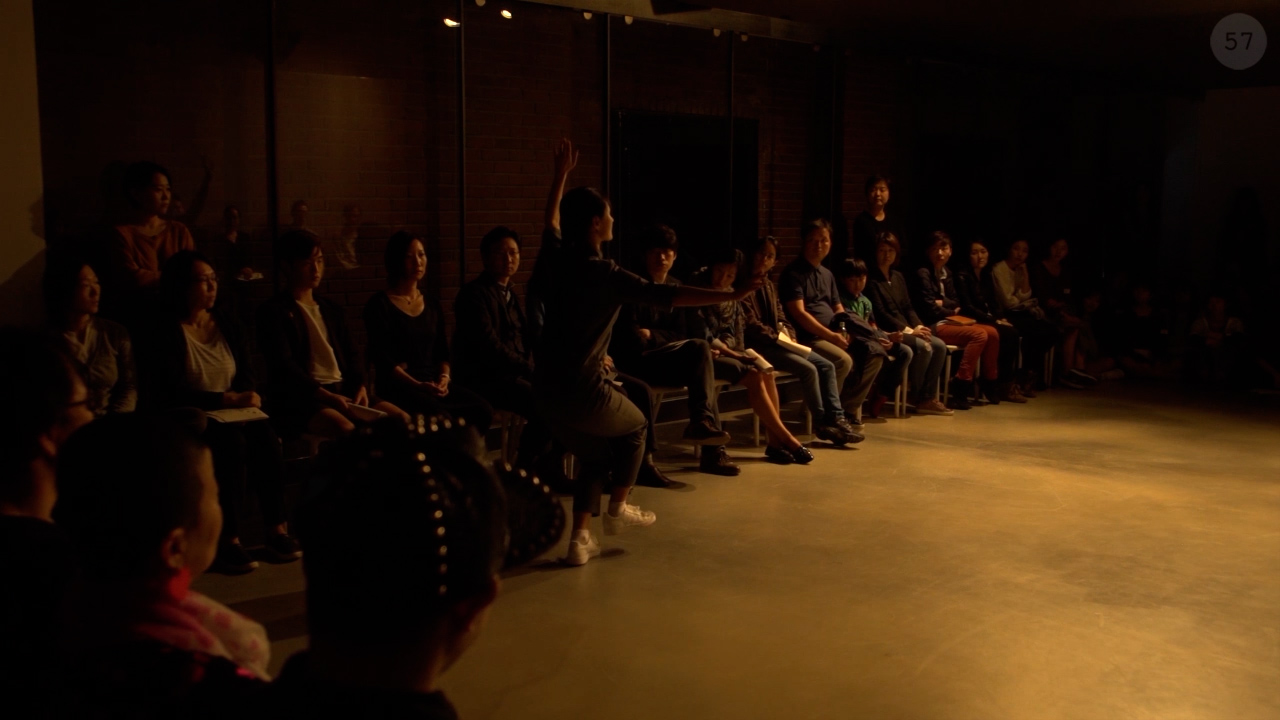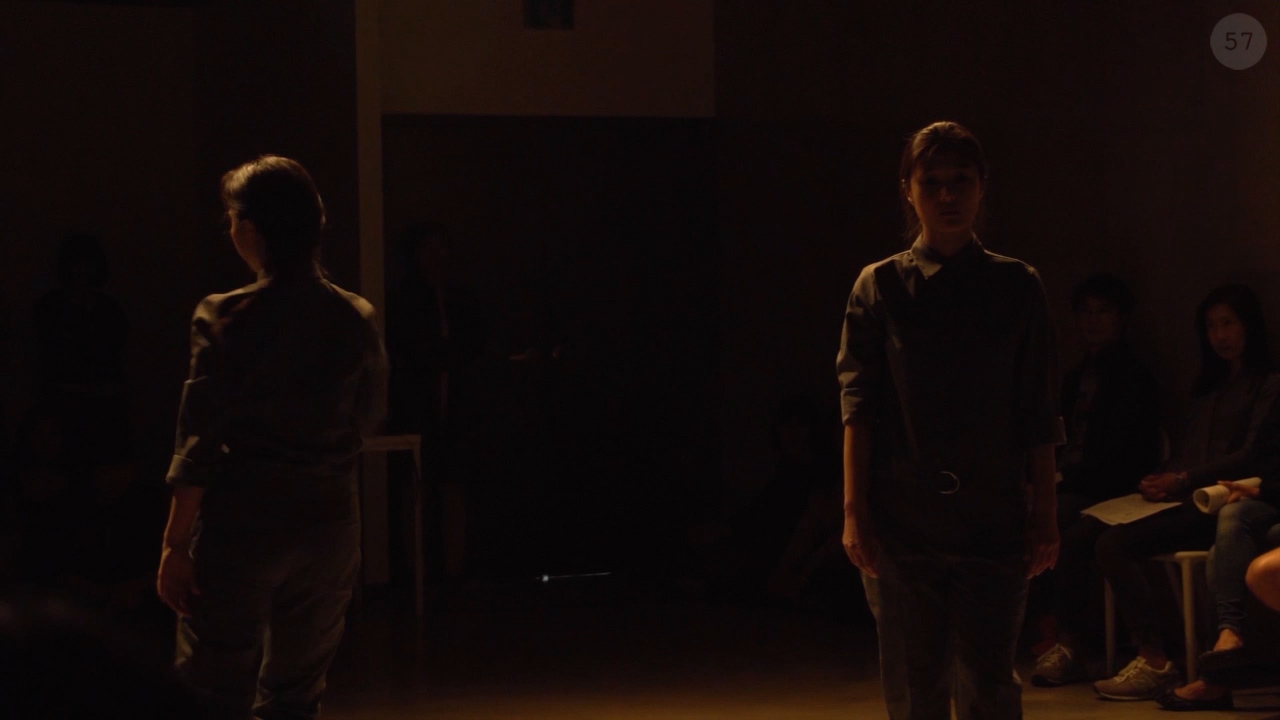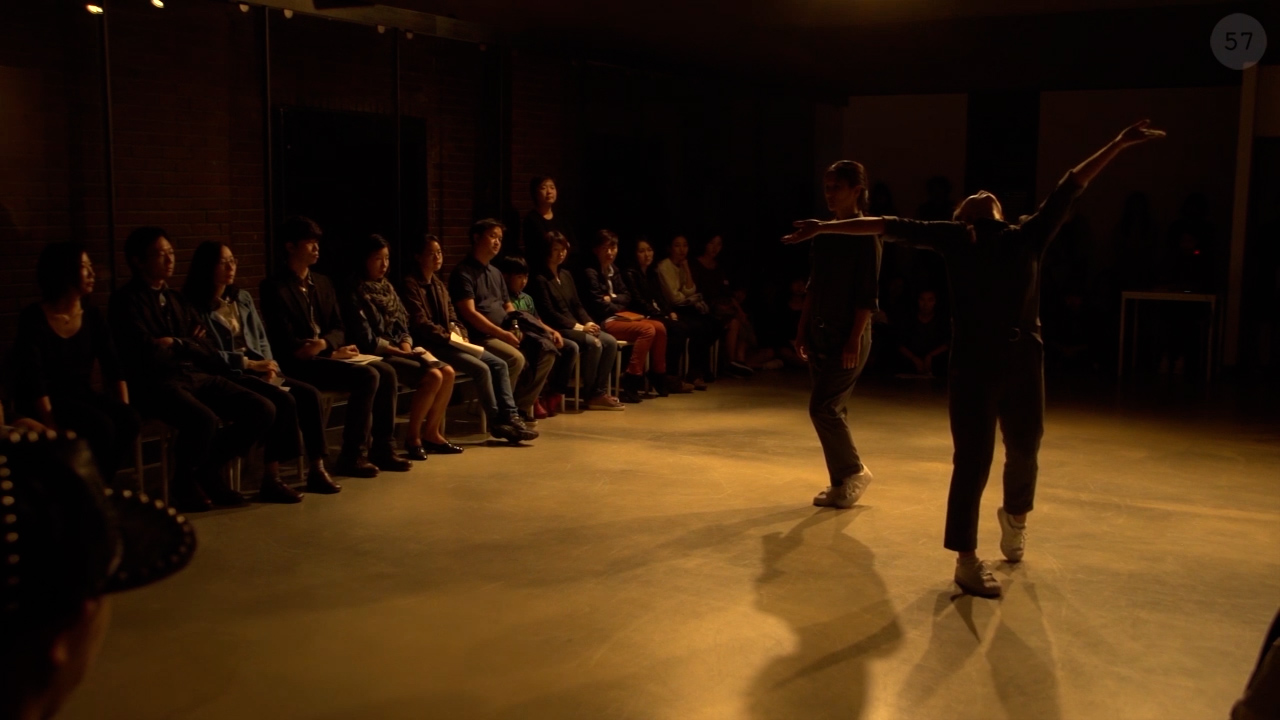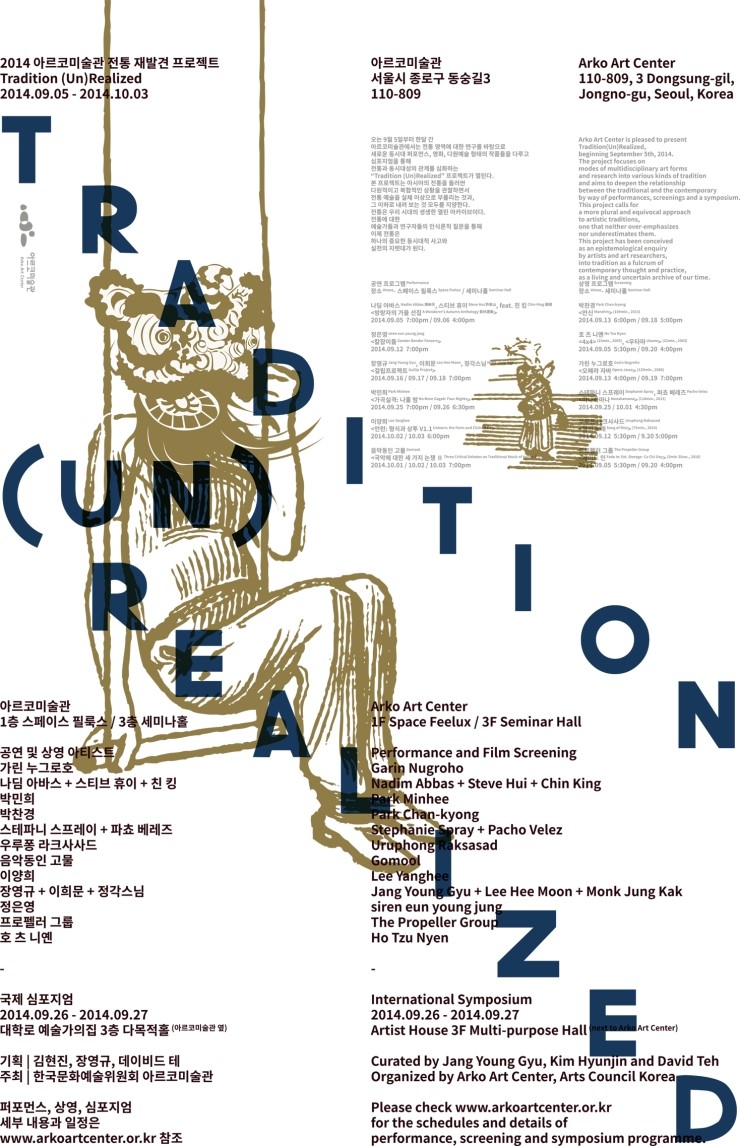전통 재발견 프로젝트Tradition (Un)Realized프로그램은 기존의 전통예술형식의 경계를 넘어, 전통의 가치를 다시 생각하는 새로운 예술적 실천에 대한 두 명의 큐레이터 김현진, 데이비드 테 그리고 작곡가 장영규의 연구에서 시작한다. 전통에 대한 일반적인 개념은 모더니티의 구축 과정에서 만들어진 것으로, 근대가 과거를 기억하는 독특한 방법으로 명명되어 있다. 동아시아 국가에서 전통은 20세기 국가 구축단계의 프로그램으로 중요한 역할을 수행했는데, 그 결과 지금도 전통 문화는 이러한 사회들 안에서 국가주의와 밀접한 연관을 맺고 있다고 볼 수 있다. 예를 들어 한국의 경우 전통예술은 특정 기예 능력으로 지정되는 무형문화재 방식의 제도화 속에 고착되어 있는데, 이러한 제도화는 전통 기술의 신비로운 기원을 강조하는데 한정되면서 민족주의적인 아젠다와 모종관계를 맺곤 한다.
출처_아르코미술관 홈페이지
The “Tradition (Un)Realized” program, a traditional reinvention project, originates from the research of two curators—Kim Hyunjin and David Teh—and composer Jang Young-gyu. It explores new artistic practices that rethink the value of tradition, moving beyond the boundaries of conventional traditional art forms.
The prevailing concept of “tradition” is a construct of modernity—shaped as a distinct way of remembering the past during the formation of modern nation-states. In East Asian countries, tradition played a critical role in 20th-century nation-building programs, and as a result, traditional culture remains closely intertwined with nationalism in these societies.
In South Korea, for instance, traditional arts have been institutionalized through the system of intangible cultural heritage, which designates certain skills or techniques as representative of tradition. This form of institutionalization tends to emphasize the mystical origins of traditional practices, often aligning with nationalist agendas.



